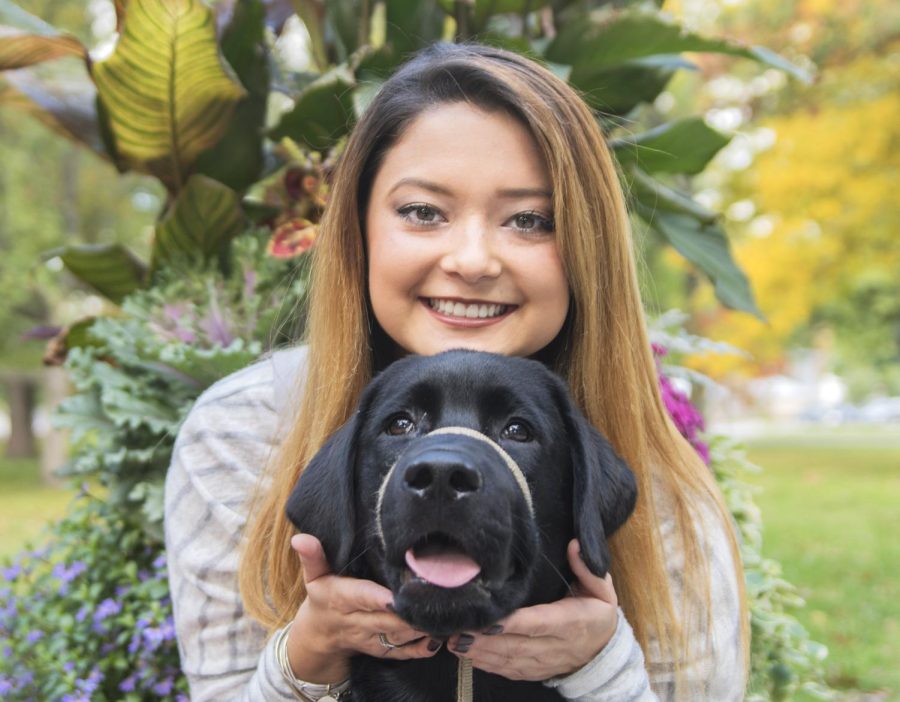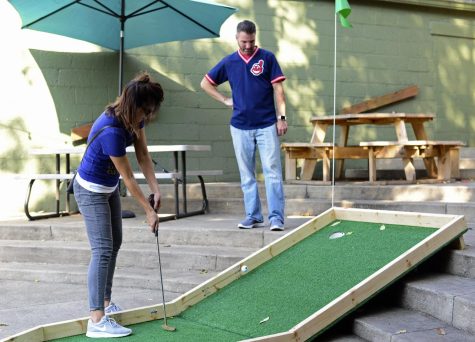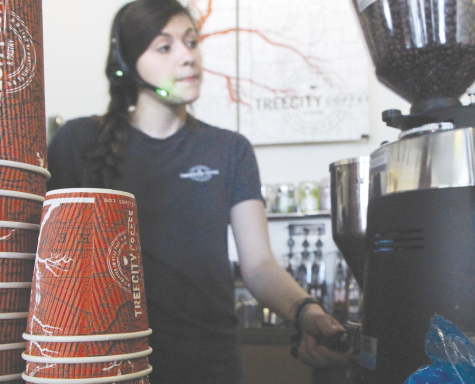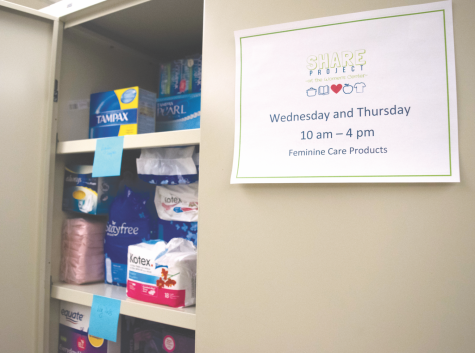Service dogs provide ‘paws’abilities
October 19, 2016
Anna Dempsey felt nervous as she walked into Texas Roadhouse with a black flat-coated retriever and labrador mix beside her.
She had been told that people would stare when she went into public and that she would become the center of attention. But she didn’t fully understand what that meant until she experienced it herself.
Sully, the four-month-old puppy, quietly sat beneath the booth until Dempsey noticed he was chewing on peanut shells previous guests had thrown underneath the table.
From that moment on, Dempsey knew that raising and training a puppy for 4 Paws for Ability would be more work than simply having her own dog.
Dempsey, a senior criminology and justice studies major, applied to be a puppy raiser over the summer.
To apply to be a puppy raiser for 4 Paws for Ability, students must complete the online application, confirm the landlord approved and send pictures of the house or apartment to be sure the living environment is suitable for the puppy.
Jessa Kenworthy, senior head trainer and university program coordinator for 4 Paws, said the organization trains a little more than 100 service dogs for children with disabilities and veterans each year.
Karen Shirk founded the organization in 1998 after she was denied a service dog from traditional service dog agencies. Shirk got her own dog and found agencies to train it herself. She dreamed of a place where applicants for service dogs were not judged based on the severity of their disability. With that vision, she developed 4 Paws for Ability.
“When (Shirk) recovered enough, she started wondering how many other people who are being denied service dogs,” Kenworthy said.
The college program began around 2008 at Wittenberg University in Springfield, Ohio. Today, there are 130 dogs on campus at 13 or 14 colleges and universities.
Students are in charge of socializing the dogs to get them used to being around all types of people.
Dempsey took Sully to a pumpkin patch as part of his socialization process. There, Sully interacted with people from babies to grandparents. Sully also interacted with a group of disabled children who came to the patch, which Dempsey said was a great experience for him.
“He does really good with everyone,” Dempsey said. “My main goal is to socialize him with everyone I can. I take him everywhere with me.”
Dempsey has had Sully as her constant companion for almost a month, and she said she will have him with her for the rest of the semester.
Part of being a puppy raiser, Kenworthy said, is understanding that it is a huge time commitment.
“It’s a lot of work,” Dempsey said. “It is hard to take him everywhere with me because you can’t just get in your car in go. You have to suit him up in all of his gear, but it’s definitely worth it.”
Kenworthy said the dogs typically stay with students for a semester, or into the break. After the puppy raising period ends and the dogs pass their training, they continue to professional training where they learn specialized training on how to act with individuals with disabilities including medical conditions, seizure disorder and post traumatic stress disorder.
“I was attached to him the first day I got him — completely in love with him,” Dempsey said. “I feel like just knowing that he’s going to do something to help potentially save a little kid’s life … that’s amazing to me. Just thinking about him being with like a little child who has problems or a veteran who has problems, that’s one of the reasons I signed up to do it.”
Samantha Ickes is a features correspondent, contact her at [email protected].





















